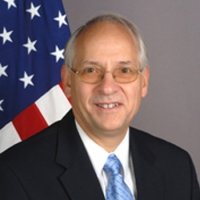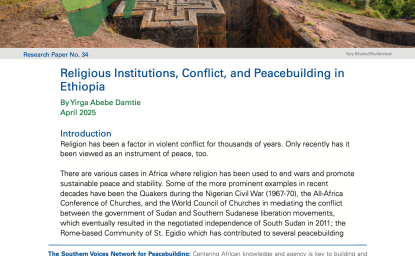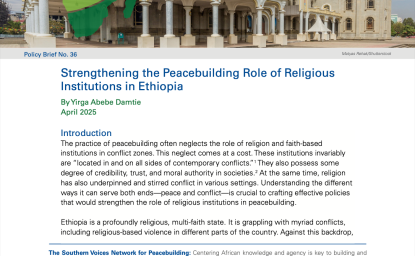T
he struggle for power and influence in the Middle East goes beyond the fighting in Gaza and Lebanon and the Iranian projection of power via clients in Yemen, Syria, and Iraq. That struggle is playing out in Sudan as well. Sudan’s future depends on how Iran, Saudi Arabia, the United Arab Emirates, Egypt, Qatar, Turkey, and Israel vie for regional influence and how their ability to project power and advance their economic interests plays out.
The Sudan Armed Forces’ (SAF’s) initial poor performance against its more mobile opponent, the Rapid Support Forces (RSF), led it to seek support from armed elements of former President Bashir’s Islamist National Congress Party (NCP). Recently, the SAF-controlled government in Port Sudan has acquiesced in the return of NCP leaders, who have openly proclaimed their agenda for restoring Sudan as an Islamic state and their hostility toward the United States. This resurgence of political Islamists combined with the SAF’s increasing reliance on Iran for weapons and financing presents the danger of Sudan becoming another Iranian proxy capable of posing a threat to Red Sea shipping and to Israel. Clearly, such an outcome should be anathema to regional actors and to the United States.
How can this be prevented from happening? The approach of some has been to support the RSF, which has asserted it is fighting to prevent the return of the NCP, which, when in power, excluded the periphery of Sudan from influence and economic opportunity. However, given the RSF’s history of ethnic killing and violence toward Sudanese civilians, is it rational to expect it can ever govern Sudan?
The United States, Saudi Arabia, Egypt, the United Nations, the African Union, and the Intergovernmental Authority on Development have repeatedly tried to broker a ceasefire and humanitarian access that can be followed by political dialogue, without success. Iran and Russia have actively supported the SAF, while others are quietly backing them. This might seem to be a good bet, as the SAF has achieved some success against the RSF in recent months. But if SAF success means the return of the NCP, which the Sudanese people sent packing in 2019, Sudan will remain highly unstable and an excellent candidate for Iranian manipulation.
Might those in the SAF who envision it to be a professional and patriotic institution that transcends politics be able to find support from regional states whose interests would not be served by expanded Iranian influence? Might Sudanese civilians and neutral armed groups be able to negotiate a transitional government with an SAF devoid of elements intent on revanchism? How the SAF leadership answers these questions will largely determine Sudan’s ability to live in peace as a diverse nation.
Author

Fmr. US Special Envoy for Sudan and South Sudan

Africa Program
The Africa Program works to address the most critical issues facing Africa and US-Africa relations, build mutually beneficial US-Africa relations, and enhance knowledge and understanding about Africa in the United States. The Program achieves its mission through in-depth research and analyses, public discussion, working groups, and briefings that bring together policymakers, practitioners, and subject matter experts to analyze and offer practical options for tackling key challenges in Africa and in US-Africa relations. Read more

Explore More
Browse Insights & Analysis
Religious Institutions, Conflict, and Peacebuilding in Ethiopia

Spying on Poachers

